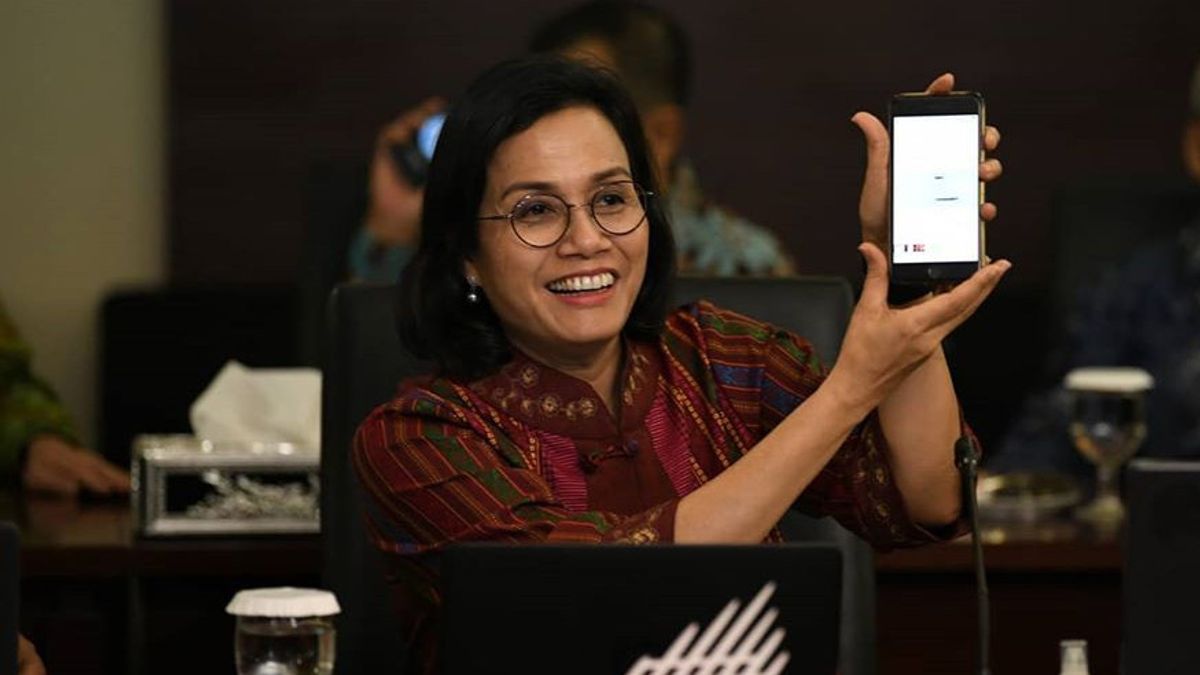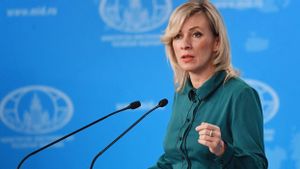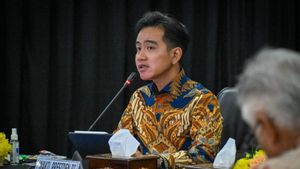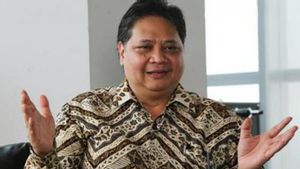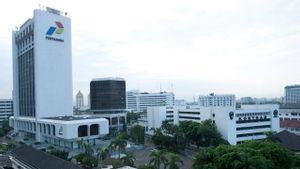JAKARTA - Finance Minister Sri Mulyani Indrawati said that from the beginning to 75 years of independence, Indonesia was not always in an easy situation economically or financially. In fact, Indonesia already had debts when it had just won its independence in 1945 when it was still led by President Soekarno.
Sri Mulyani said that development and economic activities in Indonesia are inseparable from the preparation of the national income and expenditure budget (APBN), part of which is supported by debt. However, he said, the amount of debt that had accumulated was also a legacy from the Dutch government.
Central Government debt until the end of August 2020 was recorded at IDR 5,594.93 trillion. This debt increased by IDR 914.74 trillion compared to August 2019 which was recorded at IDR 4,680.19 trillion. This debt position also increased by Rp160.07 trillion compared to the position at the end of July 2020 which was recorded at Rp5,434.86 trillion.
"From an economic point of view, we are given a Dutch heritage not only in damaged economic conditions but also in debt. So when we started from government to become an independent Indonesian state, financially we were not in a zero balance sheet ," he said, at the Opening of the Financial Profession Expo. , Monday, October 12th.
Sri Mulyani said that Indonesia does not have all the assets. Because, it was damaged by the war, and all previous investments made by the Dutch became investments by the Indonesian government. This includes all Dutch government debt.
"The debt belongs to the Republic of Indonesia. The inheritance (debt) at that time was US $ 1.13 billion. Maybe at that time the Gross Domestic Product (GDP) in Indonesia was still very small," he said.
According to Sri, every period from the new order to the reformation period provides historical reflections that can be learned. Especially when you want to build quickly and then do it, during a military confrontation or in the era of President Soekarno at that time, it cost a lot.
At that time, said Sri, Indonesia's economic situation was mostly financed by debt or resulting in a state budget deficit, which created tremendous pressure. However, he said, the state budget deficit at that time could not be financed through the sale of government bonds (SUN) as it is now. So, what can be done is to ask Bank Indonesia to print money.
"What happens is that the amount of money in circulation is more than the amount of production in the economy. So that inflation increases enormously," he explained.
In the New Order era or during the leadership period of President HM Soeharto, Sri said, Indonesia began to balance a budget , in which the Indonesian state budget had not yet been established. This means that all debt for development spending can only be done if there is multilateral and bilateral financing.
Then, during the Asian financial crisis in 1998, at that time the private sector was under enormous pressure due to a miss-match from livestock and the government itself. The banking situation had a systemic impact, which ultimately made the Indonesian government have to bear it.
[/ read_more]
From the financial crisis in Asia, said Sri Mulyani , the Indonesian government was also inherited by an increase in debt that increased to more than 100 percent. The government is billing out to save banks so that the economy will recover.
"The cost of debt has risen again to more than 60 percent. Government debt has increased due to the rupiah exchange rate. From the Asian financial crisis we were inherited by an increase in debt that increased to more than 100 percent," he said.
In the reform era, many new laws and regulations were implemented. This condition is an important initial milestone for Indonesian finances. This is because, for the first time Indonesia has a Bankruptcy Law, the Law on Bank Indonesia which was made independent, and the Law on the Deposit Insurance Corporation to underwrite public savings in banks.
In terms of state finances, how can the state financial balance begin to be built through the State Finance Law, the State Treasury Law, and the Law on the Supreme Audit Agency (BPK).
"Those are the three pillars in terms of state finances. Since 2003-2004, I have built a balance sheet for the first time. I was the first Minister of Finance to implement the State Finance Law," he said.
Sri Mulyani said, every time Indonesia experienced an episode with a stressful economy, Indonesia could still come out with a foundation that was even better than before. He also believes that Indonesia will be able to face and get out of the financial and health crisis due to the COVID-19 pandemic.
"Every time we come up, stronger and better , that should make us optimistic. We believe that the crisis we are facing today can reform and strengthen Indonesia," he said.
[/ read_more]
The English, Chinese, Japanese, Arabic, and French versions are automatically generated by the AI. So there may still be inaccuracies in translating, please always see Indonesian as our main language. (system supported by DigitalSiber.id)
